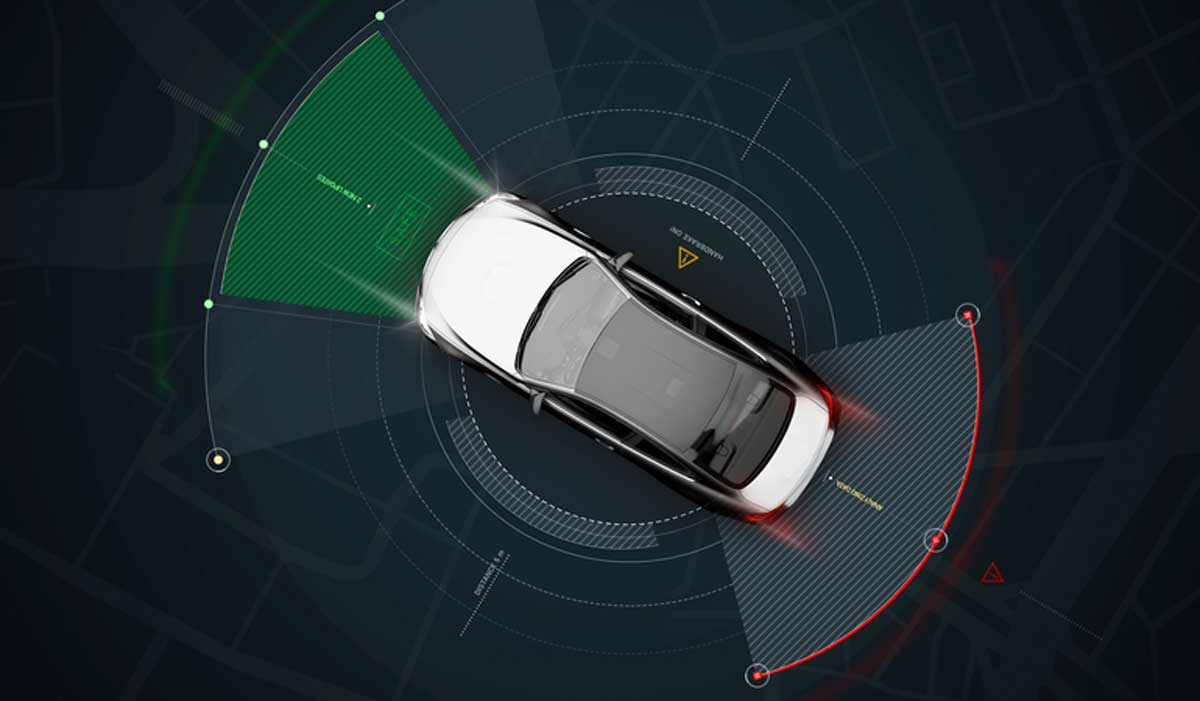COVID-19 Impact on Automotive Sensor in Semiconductors and Electronics Industry
COVID-19 is a pandemic disease that has triggered a serious worldwide epidemic, beginning in China and almost every region. It has a huge effect on almost all including human life, global economy, automobile industry, manufacturing sector, consumer goods, defense and surveillance, among others as a result of lowering demand among usage rates.
The unavailability of the vaccine to control or deter the spread of the disease is a big reason why lockdown was introduced for prevention and to reduce the spread of COVID-19. To monitor the transmission of the disease, lockdown is considered the best response found in many countries so far, but it also has an adverse economic impact.
More than 2 billion citizens were under a kind of lockdown at the height of the pandemic, and 91% of the world’s populace, about 7.1 billion citizens, resides in countries with border restrictions about travel bans because of the epidemic.
Currently, however, the factories are beginning to reopen in almost every country by taking some prevention such as 20%- 50% field workers, social distancing, drastic hygiene steps and others to help the economy. It strengthens the economy and tends to bring down the rate of contraction at any stage.
COVID-19 highly impacted the transportation of public. During time of social distancing, travelers were asked to avoid travel unless it's completely necessary. Also the behavior of the individuals have certainly changed in the pandemic, people are now more concerned towards their health and spending for future use due to incurred losses which leads to decrease in the sale of automotive vehicles.
Sensors are used to minimize fuel consumption and reduce onboard weight of vehicles. Thus increasing/decreasing demand for automotive vehicles directly impacts the demand for automotive sensors. COVID-19 has had a severe impact on the global automotive sensors market.
Due to lockout initiatives, the poor demand for electronic, specialized products had a major effect on the market for automotive sensors. It is also expected that the ongoing decrease in demand and exports for motor vehicles will adversely affect the market for automotive sensors.
IMPACT ON DEMAND AND SUPPLY CHAIN
The pandemic brought a huge drop in sales for the automotive sensor market as the lockdown prevailed in most of the regions. The lockdown led manufacturers and consumers to completely stop the processes for few months. The demand for automotive sensor market faced drastic downfall due to shut down of various automobile, airlines, transport and electronic industry.
However the things are getting normal day by day, government is taking initiatives to unlock business step by step. Post COVID-19 automotive sensor market will see an increased demand.
The pandemic has also a huge impact on the supply chain of automotive sensor market. The supply chain was adversely affected as the lockdown prevailed in many regions globally, government has limited the workers. Companies are making their operation work according to the government regulations by making limited workers work in different shifts.
However now there is an improvement in the supply chain as most of the facilities and travel restrictions have opened and working in most optimum capacity. Chinese components shortages, large-scale production interruptions throughout Europe, and the closing of assembly plants in the United States are upsetting the automotive sensor supply chain sector.
The supply chain of the industry for automotive sensors faces a lack of raw materials, a shift in manufacturing to other countries, a cash crisis due to model distribution shortages, postponed releases and a decline in customer demand.
For instance,
- In June 2020, the BCG Automotive and Center for Macroeconomics teams predicted that automotive prices will most likely decline by 14-22% in the China, U.S. and European markets in 2020, which will directly affect the automotive sensor industry.
STEPS TAKEN BY MANUFACTURERS DURING COVID-19 SITUATIONS
As the COVID-19 crisis begins to grow, the problems facing developers on different fronts will be conceivable. Producing companies will look for urgent action to keep their workers healthy and their organizations stable.
Makers will have to be forced together to look at their economic feasibility on the other side. Because the COVID-19 pandemic is intensifying, it will be likely for makers to face sustained downward pressure on demand, production, and revenues. They may continually face financial cash flow problems and difficulty in handling debt commitments.
In the automotive sensor market, the pandemic may drive the upgrade of automation, digitalization and artificial intelligence (AI). In a scenario such as automation and robotics, social distancing may decrease dependent on human labor and increase productivity, minimizing the chances of losses.
For instance,
- Many manufacturers were focusing on embedding health and safety features in automotive vehicles to boost the automotive sensor market during these crises.
These features can warn users, offering valuable information on such topics as hospital sites and hot spots for infection, as well as allowing general health care. This will boost the market sales as well as increase awareness among the users.
CONCLUSION
From the above, it is evident that the automotive sensor market has observed a huge downfall and low demand due to the COVID-19 outbreak. Post COVID-19, when cities reopen completely, we will see inclination in the demand of Automotive Sensor Market with increase in the automotive and electronics market. The COVID-19 epidemic and subsequent mitigation initiatives by governments worldwide introduced threats to the automotive sensor market's manufacturing activities.
Overall the automotive sensor market is facing a huge downfall due to low demand of consumer’s electronics and automotive vehicles. Organizations operating under this market need to build up new strategies with all the safety measures and may need to focus on technological upgradation to incur the losses and boost the growth of the market.
Even after the pandemic automation of industries will continue to increase which acts as major driver for the market. In coming half decade automotive sensor industry looks optimistic and can be seen as an opportunity.






